|
“I looked into my deepest wound and was dazzled by your glory.” – St. Augustine of Hippo (attributed) My favorite Gospel passage has always been Mark 3:2-5: “And they watched him, to see whether he would heal him on the sabbath, so that they might accuse him. And he said to the man who had the withered hand, ‘Come here.’ And he said to them, ‘Is it lawful on the sabbath to do good or to do harm, to save life or to kill?’ But they were silent. And he looked around at them with anger, grieved at their hardness of heart, and said to the man, ‘Stretch out your hand.’ He stretched it out, and his hand was restored.” Why did Jesus ask this man to stretch out his hand? Didn’t He know there were people around who would be able to see what was probably this man’s greatest insecurity? Didn’t He understand that this man had been judged and ridiculed enough throughout his life? That his deformed hand—and himself—was looked upon with disgust? Why would Jesus ask him to stretch it out, being all the more visible to the crowd around him? Jesus could have easily healed his hand while it was still hidden. Why cause more pain? Of course, Jesus was aware of the people around him who could see this man’s deformity. In this moment, however, the man with the withered hand probably felt like the only person in the room. What was happening between him and Jesus was the creation of an eternal bond, a divine exchange. This man wanted to be healed; who wouldn’t want the Divine Healer to rid us of our imperfections? But Christ asks the man to stretch out his hand so that he could participate in his healing. So that, in essence, he would tell Christ, “Here is my wound. I want to be healed.” So that it would be the work of Creator and created, an exchange of love, a sign of trust, a unification of suffering. Our redemption as Christians is comprised of many things, but the two I see most often are the participation with Christ in our healing by uniting our suffering to His on the Cross and the offering of our suffering for the benefit of another. In each way, we are actively engaging with the Divine Healer to find His strength through our pain and confidence in the midst of our flaws. When we invite God into our wounds, he transforms them. As St. Augustine said in the quote above, we can be dazzled by the glory we find there. As Catholics, we often hear in regards to suffering the phrase “offer it up.” I think this can sometimes belittle what is truly going on. When we sit before God and say “here are my wounds, here is my pain, hurt, and suffering—heal me,” something supernaturally transformative occurs. We are unifying our wounds to Christ’s wounds on the Cross and, wound for wound, are transforming our suffering into an act that is redemptive. When we participate with Christ in our own healing through suffering, Christ takes that free act of love and can use it to not only heal you, but to transform you to be more like Him and help others to also be transformed. How can actively participating in your healing transform others and lessen their suffering? Well, I think it is mostly a mystery. But allow me to unpack what I think occurs. Each amount of suffering offered up is like a quarter being placed in a jukebox. Once inserted, it enables the rest of the room to hear the music. The whole room is transformed. So too by offering your suffering to God, your fellow man can receive the sweetness of your pain and be converted by the beauty of your love freely given. Each contribution to this divine economy enhances the unity of the Mystical Body of Christ. The heavens move, the saints and the angels engage, and the supernatural world comes in contact with the natural, bridging the gap between heaven and earth just a little more. By inviting God into our hurt, giving our suffering to Him for the sake of others, and by showing it boldly like the man with the withered hand, we can participate with our Creator in becoming whole. This is the beauty of our faith—that our suffering is not our end, but rather the avenue by which we grow closer to Christ.
0 Comments
Angels are mysterious beings. Our culture has a lot of misconceptions about angels--what they are, who they are, and what they do. According to the Catechism of the Catholic Church (CCC), an angel is a being of pure spirit; that is “what” they are. St. Augustine tells us that the word “angel” is actually what they do: they are messengers and servants of the Most-High God. There are three archangels named in the Bible: Michael, Raphael, and Gabriel. These messengers served God’s people at different times and had different purposes. They had vastly diverse missions, each corresponding to their very identity and being. Let’s take a look at them now. St. Michael is known as the Prince of the Heavenly Hosts and the defender of God’s people. According to the Catholic Bible Dictionary, Michael means “Who is like God?”. In the Book of Revelation, “Michael and his angels” battle the dragon, an ancient symbol of the devil, and throw him and his followers out of heaven. Christianity honors him as a patron of the nation of Israel, God’s chosen people of the Old Testament. Today, Michael is still thought of as a guardian of the Church, God’s people of the New Testament. St. Raphael is mentioned in one book of the Bible—the Book of Tobit. His name can be translated as “God will Heal.” In the Book of Tobit, God sends Raphael to answer the prayers of two people: Tobit, who was blinded by bird droppings, and Sarah, who was harassed by a demon who killed any man she married. These two, on the same day, prayed to God for death. God answered their prayers by sending Raphael, who brought together Tobias, Tobit’s son, and Sarah. He also banished the demon that stalked Sarah and healed Tobit’s blindness in the same journey. St. Gabriel appears once in the Old Testament and twice in the New Testament. His name means “God is my warrior” or “God is strong.” First, he is sent to the prophet Daniel in the time of the great exile to interpret visions concerning the coming of the Messiah. Second, he appears to Zechariah to foretell the birth of John the Baptist. St. Gabriel is best known, however, for appearing to Mary and announcing the birth of the Messiah, Jesus. The names of these angels tell us their missions. Michael (Who is like God) reminds us that there is no one like our God who deserves and desires our love. Raphael (God Heals) reminds us that it is only through the power of the Divine Physician that our wounds can be healed. Gabriel (God is Strong) reminds us that it is in God and the proclamation of his Word that we find our true strength. What can these three messengers tell us about our missions? Our own name gives us our mission. I’m not necessarily thinking about our personal names, as those meanings don’t always correspond to a call from God. Through our baptism, we have been named Christians. In the early Church, the term was used in reference to those who followed Christ and were persecuted for the faith. This name gives us our truest identity as those who belong to and follow Christ. It also gives us a mission: to continue his work in our world today. We are called to be the face, hands, feet, and heart of Jesus to all we encounter. Let us live out of this identity as authentically as we can so that others may come to know Jesus through us. As St. Ignatius of Antioch, who lived in the generation after the apostles, said, “Let me not merely be called ‘Christian’; let me be one.” May the angels and archangels help us to live up to our identity and mission as followers of Christ on our journey towards heaven. NOTE: Definitions of angels’ names found in the Catholic Bible Dictionary edited by Scott Hahn. “See, I am sending an angel before you, to guard you on the way and bring you to the place I have prepared. Be attentive to him and obey him.” -Exodus 23:20-21 I grew up having a devotion to angels, especially the archangels Gabriel, Raphael, and Michael, whose feast we celebrate tomorrow. Because my sister was born on this feast, my parents gave her the middle name Gabriela in honor of my mother and of the Archangel Gabriel – messenger of Good News. When I was a child, my mom often mentioned Raphael the Archangel as one of her favorite saints. She had prayed to him as a single woman because of his role in the Book of Tobit in bringing together Tobias and Sarah. Because of his intercession, she said, she met and married my father. Throughout their marriage, a photo of St. Raphael has always hung in their bedroom. Our devotion to St. Michael was uttered each day as we asked for his protection and intercession in the St. Michael prayer. Because of my upbringing, I have come to know and love the angels as allies and friends. But what exactly is an angel? Are they ghosts, human beings with wings, or simply fairytales? In a morning meditation in 2014, Pope Francis urged us not to consider the Church doctrine on the existence of angels to be “a little imaginative.” Angels are real and active in the life of the Church and world today. “As purely spiritual creatures,” the Catechism writes, “angels have intelligence and will: they are personal and immortal creatures.” (CCC330). The Church’s teaching on the existence of angels comes from Scripture and Tradition. Angels are the result of God’s creative work. When we say in the Nicene Creed that we believe in things both “visible and invisible,” we testify to the existence not only of physical creation, but also of spiritual creation. As servants of God, angels appear numerous times throughout Scripture in various roles and capacities. Angels guarded the Garden of Eden after the Fall of Adam and Eve, led the Israelites out of Egypt to the Promised Land, announced the birth of John the Baptist, appeared to St. Joseph in several dreams, and perhaps most notably, announced the birth of Christ to the Blessed Virgin Mary. Scripture also notes that the angels ministered to Jesus after his forty days of prayer and temptation in the desert at the beginning of his ministry, and that Christ was strengthened by an angel during the agony in the garden of Gethsemane. Not only did angels exist in Biblical times, but they are also present to each one of us every day. St. Basil the Great taught that "each and every member of the faithful has a Guardian Angel to protect, guard and guide them through life.” The Catechism reiterates this belief, stating, “From its beginning until death, human life is surrounded by their watchful care and intercession. Beside each believer stands an angel as protector and shepherd leading him to life." Angels, therefore, were created by God to praise and glorify him, as well as to serve as his messengers and our protectors, instructors, and allies. Our guardian angels are a gift from God to help each one of us achieve eternal life. As we read in Hebrews, "Are they not all ministering spirits sent forth to serve, for the sake of those who are to obtain salvation?” The beauty of their existence means that, as human beings, we are never alone. We journey through this life with a celestial companion who wills our good and helps us achieve sanctity. Pope John Paul II wrote that devotion to our guardian angels and the angels overall leads to two outcomes: gratitude to God and peace and confidence. As we know, growth in the spiritual life can be difficult on our own. Each day we are called to overcome many temptations and weaknesses, to be healed, to grow in virtue. In God’s generosity, he not only gave us the gift of the Church and sacraments to receive grace and strengthen us on our journey; he also gives us celestial help through the existence of angels. As we prepare to celebrate the Feast of the Archangels tomorrow, Pope Francis leaves us with pertinent and thought-provoking questions: “How is my relationship with my guardian angel? Do I listen to him? Do I say good morning to him in the morning? Do I ask him: ‘Watch over me when I sleep?’ Do I speak with him? Do I ask his advice? … We can answer this question today, each of us: how is our relationship with this angel that the Lord has sent to watch over me and accompany me on my journey, and who always sees the face of the Father who is in heaven?” — Pope Francis, Homily, October 2, 2015 Today marks one week until a great man comes to visit us, bringing joy to all. Given the nature of this blog, I’m guessing you think I’m talking about the coming of the newborn Jesus Christ. But I’m actually talking about Santa Claus! The jolly old man himself, bringing loads of goodies on his sleigh to the girls and boys on his twice-checked list. Yes, indeed. What else is special about Christmas? It is interesting to see the secular meaning of Christmas intersect with the glorious birth of our Savior to yield a sort-of confused holiday. The world seems to forget that during this season of Advent when Catholics are preparing their hearts to welcome Jesus on the 25th, many are just preparing themselves to welcome elves and anxiety. This year in particular, I have had to take a step back from all the noise and busyness, and enjoy the peace and joy of this Advent season. Can we still find God with us?
The Gospel today helps us anticipate God’s Promise through faith. In Matthew 1:23, Joseph is visited by an angel to fulfill what the prophets had written, “Behold, a virgin shall conceive and bear a son, and his name shall be called Emmanuel” (which means, God with us). Joseph had extraordinary faith to believe that Mary was filled with the Holy Spirit and that he would care for the One who was being sent to save the world. This was no small feat for a simple carpenter, but Joseph understood the importance of Christ’s birth. This last part of this passage, God with us, caught my ear when I first read it, and reminded me of a Theology class from freshman year in college. We learned that in order to redeem the world from Original Sin, God had to dwell among us on earth. God could only do that by becoming fully Divine and fully Human, and only through a stainless virgin could Jesus be stainless himself. The world has truly been saved because of a small child, born in a stable and laid in manger over 2,000 years ago. Each year we have 4 weeks to ready ourselves for his arrival again. The joy of the season is not packages, ribbons, and bows, it’s realizing that God is here to love us and save us. In my classroom, we have an elf named Chester who comes to visit during the weeks of Advent. He arrived on the first day back from Thanksgiving break, and we have found him in a new spot every morning. According to the book he brought with him called, Elf on the Shelf, he returns to Santa to relay messages about whether or not the kids in my class were naughty or nice each day. Based on this report, my students will have a visit from Santa on Christmas morning. What if instead of Santa visiting us with things, we visited God with full hearts and open arms? Although Chester the Elf is here throughout Advent and will disappear after Christmas, God is always with us. Krissy Kirby is a Kindergarten teacher for the Archdiocese of Washington, D.C. To learn more about Advent, please see our Advent Resources! Recently, I joined a Catholic group for young adults in my parish. Once a month we have a group dinner and host a guest speaker to talk informally about certain topics in our Catholic faith. One of the speakers discussed the importance of community prayer, a topic that stuck with me so much so that I wanted to share the message.
First, prayer is essential for our spiritual growth and personal well-being. God does not intend for us to bear our crosses alone. In Matthew 11:28-30 Jesus said, “Come to me, all you who labor and are burdened, and I will give you rest. Take my yoke upon you and learn from me, for I am meek and humble of heart; and you will find rest for yourselves. For my yoke is easy, and my burden light.” Being a part of a faith community serves as a support system for us. We rarely like to be alone. Don’t we all crave sharing meals with friends and family? In fact, Jesus shares the source and summit of our faith with us over a community meal. Community strengthens and unites us in our faith. Our community even prays for our intentions at Mass. Therefore, community prayer is another way for us to become closer to God through others. The communion of saints and angels are also a part of our community. Saints and angels can pray on our behalf, with us and for us. The Catechism of the Catholic Church states, “[the saints’]intercession is their most exalted service to God’s plan. We can and should ask them to intercede for us and for the whole world.” We are never alone in our prayers. Instead of trying to figure out how to pray for the intercession from every saint, our speaker suggested picking a few we feel really close to and sense a calling toward to ask for prayers on our behalf. Family prayer is the first place of our prayer education, also mentioned in the Catechism. Prayers over meals, memorizing prayers of the rosary, praying for a good grade on a test, and the list goes on. Our introduction to faith and prayer begins in the community of our home. This is why it is so important to make family prayer a priority. St. Augustine says, “For he who sings praise, does not only praise, but also praises joyfully; he who sings praise, not only sings, but also loves Him who he is singing about/to/for. There is a praise-filled public proclamation in the praise of someone who is confessing/acknowledging (God), in the song of the lover (there is) love.” The Mass, the Liturgy, is the ultimate community prayer. This is one reason why attending Mass is vital to our faith. Liturgical prayer is a public prayer following prescribed ritual intended to unite individuals with God through Christ. We are renewed each week in community prayer by attending and participating in the Mass. As always, it is necessary to have individual structured prayer time every day. This is something I struggle with and have to continually be reminded of myself. To remember the time to share with God, setting a routine of prayer and remaining disciplined in that routine can help. One of the sisters who taught at the Catholic high school I attended said for us to hide our shoes under our beds so in the morning we kneel to get them and remember to pray! Take some time today to remember to pray, and to look at the different prayer communities in your life! Dana Edwards is a recent graduate of the University of Florida. She currently resides in Tallahassee, Florida where she volunteers as a lector and with communication outreach at her local parish, Good Shepherd Catholic Church. Angel of God, my guardian dear, To whom God’s love commits me here, Ever this day, be at my side, To light, to guard, to rule, and guide. Amen 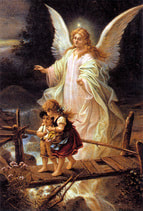 Today we celebrate the Memorial of the Guardian Angels. The prayer above was one my mother taught me when I was a child, and even now I can easily recall it. She taught me to say it as I was going to bed, a reminder that my Guardian Angel would be watching me as I slept. Throughout Scripture, we see the importance of angels and their role as intermediaries between us and God. A prime example of this is the Angel Gabriel appearing to Mary to announce to her that she would give birth to the son of God. But, beyond the known archangels, we recognize the role of individual Guardian Angels. The Catechism of the Catholic Church affirms that “from infancy to death human life is surrounded by their [angels'] watchful care and intercession. Beside each believer stands an angel as protector and shepherd leading him to life. Already here on earth the Christian life shares by faith in the blessed company of angels and men united in God" (CCC, n. 336). When I saw that today was the Memorial of the Guardian Angels, it got me thinking about this idea of a Guardian Angel, something I hadn’t thought about a lot as an adult. As children, many of us are taught about our Guardian Angel, who is continually watching over us. It’s a comforting thought, to think that there is a specific angel “assigned” to protect and watch over you…and only you! It’s creates a sense of security and safety, especially in the mind of a young child. In today’s Gospel reading, Jesus alludes to these angels, remind us to “not despise one of these little ones, for I say to you that their angels in heaven always look upon the face of my heavenly Father”. (MT 18:10) Now that I’m older, I certainly don’t think of a Guardian Angel in the same way. As a child I imagined an invisible person, following me around constantly to make sure nothing bad happened (which is a daunting task for anyone, but I pity the angel assigned to protect me, with my proclivity for clumsiness!). As comforting as the idea of an invisible protector seems to me now, I recognize the idea of a Guardian Angel as something different. Guardian Angels can be seen as a symbol of God’s enduring love for us. In the huge expanse of the human population it is often easy to feel insignificant. But the symbol of a Guardian Angel serves to remind us that God’s love is individual and complete! We were made in the image and likeness of God, and He truly loves each and every one of us on a personal level. So tonight, say a prayer to your Guardian Angel, remembering that God watches over you through these Angels, a sign of his unending Love! Rebecca Ruesch is the Blog Editor for the Catholic Apostolate Center St. Joseph is known as the Shadow of the Eternal Father, the Perpetual Adorer, the Patron of the Universal Church, the Patron of the Suffering and Dying, the True Foster Father of Jesus Christ, and Most Chaste Spouse of the Ever-Virgin Mary. He shows how a person must rely on the Father’s providence, trust the boldness of the Holy Spirit, and cherish the Incarnate Jesus, all while staying close to the Virgin Mary. St. Joseph is a model of faith and in a unique way he upholds the dignity of all vocations.
Joseph survives and thrives as a person of faith by abandoning his life and family completely to God. The Devil, Herod, and everyday difficulties, like not being able to find a place for his wife to give birth, threaten Joseph’s most precise gifts. A faithful person humbly resigns what they care about most to the Giver of All Gifts only to receive back what is best blessed and renewed. Joseph protects his family through surrendering them to God. How wonderful St. Joseph’s prayers must have been. The way he took his fears and insecurities to God to receive true strength must have been so beautiful. There are many ways that we know that St. Joseph’s faith was profound. The Virgin Mary knows for sure that she has never been with a man, but Joseph does not. St. Joseph trusted in the words of an angel in a dream. The angel said, “Joseph, son of David, do not be afraid to take Mary home as your wife, because what is conceived in her is from the Holy Spirit” (Mt. 1:20). Catholic theology of the Trinity had not been developed yet leaving Joseph not knowing with any sort of clarity who this “Holy Spirit” was that had impregnated his fiancée. St. Joseph demonstrates that his faith is not the kind that limits God by being attached to personal plans and expectations, but is one that allows God to act boldly. His faith is fulfilled by being lived out; he did take Mary as his bride, he did raise Jesus as his son, he did go wherever the Lord commanded him. Joseph fled to Egypt when Jesus’ life was being threatened and he returned home when he was told, doing everything in accordance with God’s will and timing. The obedient Joseph, as the Perpetual Adorer of the Christ-child can also help us grow in intimacy with Christ. Have we ever realized that the baby Jesus was most likely birthed into the callused hands of his carpenter foster-father? St. Joseph knew Jesus in a radically unique and intimate way. Joseph was able to adore the Eucharist while it was still breathing. We can relate to Joseph in the struggles that he faced and the fact that he was not spared from original sin. He was broken, flawed, sinful, fearful, and even being tempted. Joseph, as most chaste spouse, did not reduce Mary to an object of pleasure but he honored her as a whole person. We can imagine that Joseph embraced his call to chastity not begrudgingly but with great joy. Their intimacy honors the glory of creation by neither of them trying to dominate or manipulate the other for personal gain. How immaculate their interactions must have been! St. Joseph and Mary model for us a pure intimacy rooted in trust, commitment, and the will of God. With these considerations in mind we see St. Joseph as an inspiration for all people because he was called to marriage, parenthood, and celibacy. Whether we are called to marriage, religious life, priesthood, or the single-life we should entrust ourselves to St. Joseph and know that he understands the burdens that we carry. As a good father he will teach us to trust God completely and to allow the Holy Spirit to move in dramatic and unexpected ways. With Joseph as a model of faith we will honor the dignity of all people, love Mary, and intimately adore the Incarnate Christ. Daniel Hoover works at St. Mary’s Parish in the Diocese of Wilminigton, DE as a Lay Ecclesial Minister. |
Details
Archives
July 2024
Categories
All
|
About |
Media |
© COPYRIGHT 2024 | ALL RIGHTS RESERVED

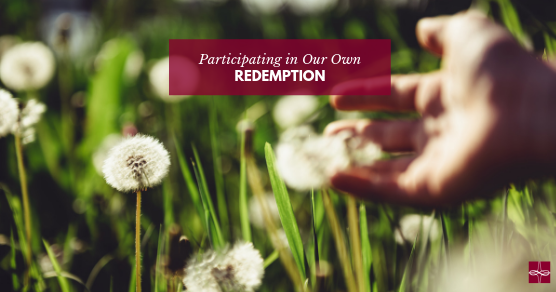

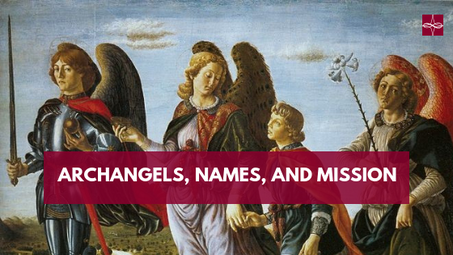

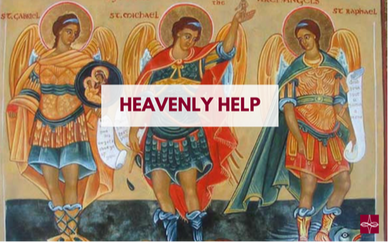


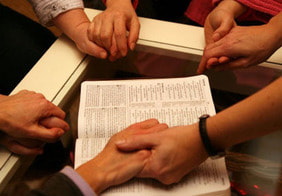
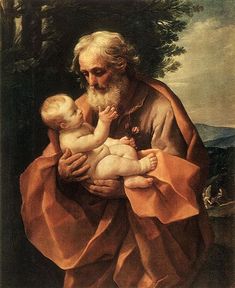
 RSS Feed
RSS Feed